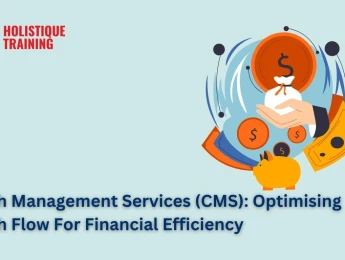This Training course is aimed at business professionals who need to understand how finance works. Financial information can provide a clear picture of how to increase profitability, decrease costs, and meet targets in any business.
It is very crucial that managers and administrative professionals can understand financial data, produce reports and interpret this information to inform logical and valuable decision-making.
This course will provide the required skills to understand financial and accounting data and how it is used for planning, monitoring and decision-making.
Upon completion of this course, participants will be able to:
- Understand financial statements and reports how they are prepared and presented
- Understand internal accounting procedures and techniques and how it is used to control operations and inform profitable decision-making
- Identify the main sources of finance available to a business
- Review and analysis of published financial reports and how they are perceived by various stakeholder groups
- Identify, measure and manage financial risks effectively
- Use the language of accounting and finance to communicate effectively with financial professionals
This course is intended for
- Any non-financial professionals whose role demands an understanding of finance
- Heads of Departments where financial control is a key
- Accounts Administrators and Assistants
- Finance staff who wish to improve their knowledge
- Sales and Marketing Executives
- Human Resources Professionals
- Purchasing and supply chain team members
- Internal Auditors
- Consultants who work with professionals and executives to support improvements to operational and financial processes Budget holders across the organisation
- Planning team members
This Accounting & Finance for Non-Financial Professionals will use a proven training method to develop participants' practical skills and abilities in understanding and applying financial information and techniques. This includes tutor presentations, Q&A sessions, demonstrations, and practice of analytical techniques using current company and market information sources.
Relevant Case studies will also be provided to allow the participant to participate in teamwork analysis, explore options and propose strategies and solutions.
Day 5 of each course is reserved for a Q&A session, which may occur off-site. For 10-day courses, this also applies to day 10
Section 1: Introduction to Finance & Accounting
- What are Accounting & Finance?
- Financial accounting & management account
- The importance of finance
- Sources and types of finance for business organisations
- The structure of the financial accounting system
Section 2: Financial Statement & Financial Analysis
- The Income Statement
- The Balance Sheet
- The Cash flow statement
- Financial report - content & format
- Cash Flow vs Profit
- Techniques for Interpreting the Financial Statements ( Common-Size Analysis and Ratio Analysis)
- Accounting for assets
Section 3: Planning and Controlling - Budgeting and Break-even Analysis
- Management Accounting
- Cost / Volume / Profit (CVP) Analysis and The Break-even Point
- How to prepare budgets, and why?
- Variance Analysis - Budget v Actual results
- Budgeting Models
- Understanding Overheads and How they should be treated in internal analysis and decision-making
- The importance of cost analysis
Section 4: Finance & Capital Investment Appraisal
- Investment appraisal methods (ARR, Payback, NPV and IRR)
- The cost of capital - Equity and Debt
- Sources and types of finance (Long-term vs short-term)
- Why investment is essential for profitability and growth
- Mergers & Acquisitions
- Capital rationing and decision-making
- The time value of money – future values and present values, perpetuities and growth
- Review of External Growth Strategies: Mergers, Acquisitions and Joint Ventures
Section 5: Financial Risk Management
- Identifying major financial risks
- Analysing and evaluating the risk
- Developing a risk management strategy
- Foreign currency risk
- Interest rate risk
Upon successful completion of this training course, delegates will be awarded a Holistique Training Certificate of Completion. For those who attend and complete the online training course, a Holistique Training e-Certificate will be provided.
Holistique Training Certificates are accredited by the British Assessment Council (BAC) and The CPD Certification Service (CPD), and are certified under ISO 9001, ISO 21001, and ISO 29993 standards.
CPD credits for this course are granted by our Certificates and will be reflected on the Holistique Training Certificate of Completion. In accordance with the standards of The CPD Certification Service, one CPD credit is awarded per hour of course attendance. A maximum of 50 CPD credits can be claimed for any single course we currently offer.
- Course Code PF1-101
- Course Format Classroom, Online,
- Duration 5 days














